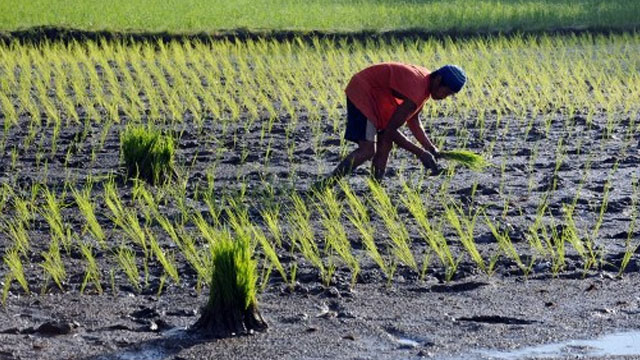SUMMARY
This is AI generated summarization, which may have errors. For context, always refer to the full article.

MANILA, Philippines – An expert from the World Bank’s corporate arm, the International Finance Corp. (IFC), urged Philippine banks to give farmers a second look as not all of them are high-risk borrowers.
In a breakout session at the CITI-FT Financial Education Summit 2012, IFC East Asia-Pacific Agrifinance Specialist Hans Dellien said local banks may offer various financial services to around 20% to 30% of Filipino farmers today.
This percentage is equivalent to about 480,000 to 720,000 farmers, who are are low-risk. The Department of Agriculture estimates that there are about 2.4 million farmers nationwide.
The IFC expert said banks need to look for the bankable farmers and lend to them. These farmers are good at managing risks and allocating resources, he said.
“There are different types of farmers. There are high-risk farmers. There are sexy farmers. What banks need to do is to identify the good farmers, the strong farmers. (Around) 20-30% of farmers in the Philippines are already bankable today. They received training. It’s not true that all farmers are bad, all farmers are risky,” Dellien said.
Changing hands and outlooks
Making Cents International President Timothy Nourse said one way to turn around the other 70% to 80% “high risk” is to encourage their children to take more active roles in running the farm.
Dellien agreed and said this is because children are more tech savvy, and can easily be taught financial management concepts.
Nourse said in some parts of Africa, children are being included in financial literacy programs for farmers. This is because many of them are literate, and are able to get higher education than their parents.
But Nourse also said that more has to be done to help. He said it is important for farmers to change their mindset: they should not view farming as something they inherited from their forefathers, but as a true business.
Changing the mindset of farmers would also convince them that they need financial education. This will not only make them more organized, but also profitable, he said.
Nourse said if farming can become a more profitable sector, more of the younger generation will stay and turn their farms into real and sustainable businesses. – Rappler.com
Add a comment
How does this make you feel?
There are no comments yet. Add your comment to start the conversation.